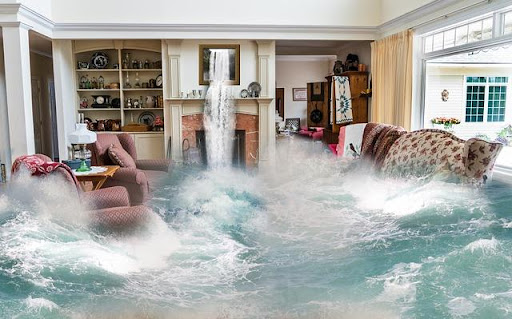
A sump pump system is one of the most effective defenses against basement flooding in your home. Sump pumps also help to prevent sewage backups. They reduce humidity levels in the house and will reduce the risk of mold in your basement.
The best thing about sump pumps is they virtually run themselves. You don’t have to manually switch them on and off. The sump pump will automatically power on to remove water from your basement and switch off after the water is pumped out of your home.
But to fully enjoy the peace of mind afforded by a sump pump, you must maintain it to prevent failure. Fall River Property Management warns that sump pump failure is a major problem for homeowners. If the sump pump fails without the owner’s knowledge, the home will be exposed to the risk of flooding.
There are many reasons sump pumps fail. Most of them can go undetected for a long time. In many cases, the homeowner only learns of the problem after the damage is done. If your home is flooded despite your sump pump, the entire purpose of the system is defeated.
How do you ensure your home is fully protected from basement flooding by avoiding sump pump failure?

If your home is flooded despite your sump pump, the entire purpose of the system is defeated.
How to avoid sump pump failure
To prevent sump pump failure, you must know the common causes of the problem. Below are the reasons your sump pump may fail and what you can do about them. Note that to detect these problems before they create an emergency in your home, you must inspect your sump pump regularly.
Stuck float switch
The float switch is the device that turns the sump pump on and off. It is a buoyant switch that monitors the water level in the sump pit to determine when to trigger the sump pump. Debris around the float switch can jam it. It can also be displaced by the vibration of the motor. Clean, adjust and test the float switch every time you inspect the sump pump. To test the float switch, pour some water into the sump pit until the water level is high enough for the sump pump to power up. Wait until the pit is empty to see if the motor powers off.
Clogged lines
Clogs interfere with or even prevent the proper function of your sump pump. Clogs can happen in various areas of the system, and they are mostly caused by debris. If one of the following lines/pipes is clogged, the pump will not be able to move water out:
- Clogged discharge line: If the discharge line is blocked, discharged water will back up into the pump and cause it to fail.
- Clogged intake screen: The intake screen may be blocked by debris. It will force the pump to work harder, ultimately leading to failure.
- Frozen discharge line: This mostly happens in winter. It has the same effect as a clogged discharge line. Adding insulation to the pipe can prevent this issue.
The way to solve some of these problems is to inspect and clean your sump pump regularly.
Loss of power
The sump pump will lose power if there is a power outage during a storm. Another common reason a sump pump may be disconnected from power is if someone in the home unplugs it and fails to plug it back or the circuit breaker is accidentally turned off. Problems with the home’s wiring can also cause this problem. A high water alarm system will alert you if your sump pump is not working. You may also add a second layer of protection with a battery-powered backup pump.

In the same way that the sump pit can be inadequate for your home, the sump pump can be too small for your house.
Undersized sump pit
If your sump pit is too small for the volume of water that enters your home, the sump pump will be overwhelmed and ultimately fail. The size of your sump pit should be determined by the average rainfall amount in your area and whether your home is close to a large water body. Soil drainage is another factor that can influence how much water enters your sump pit. If you have had sump pump failures in the past, you may want to have an expert check the sump pit to see if it is adequate for your home’s needs.
Wrong size pump
In the same way that the sump pit can be inadequate for your home, the sump pump can be too small for your house. Sump pumps come in various sizes. The right size depends on the volume of water you expect to enter the basement. As a rule, it is always better to have a sump pump with excess capacity than one that perfectly suits the needs of your home.
To conclude, the best way to avoid sump pump failure is to have a plumber thoroughly inspect or repair your sump pump system and make recommendations on how you can improve the system. Regular sump pump inspections will also let you catch problems before they become emergencies.